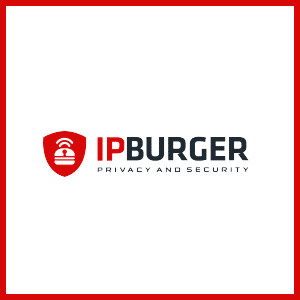Achieving digital privacy and anonymity is one of the best things you can reward yourself in this modern digital era. Although privacy and anonymity are two-faced, the good reasons to become private and anonymous outweigh the wrong reasons. Although one cannot achieve total privacy, you can always ensure that what is known about you is minimal. And here is how to do that;
 Évitez de trop partager vos IPI
Évitez de trop partager vos IPI
Personally Identifiable Information (PII) is any piece of information or data that can be linked to a specific person. This data is mainly composed of your name, your face, social security number, date of birth, your home address, location and everything that points to you. Most of the time, you can share this data without knowing for instance, when it’s requested by some online services or even in social media platforms. If it’s a service that you can do away with, think twice before giving out your PII. For instance, what if a data breach occurs? Or your details are hijacked by malicious actors?
Pour plus de sécurité, ayez toujours un autre ensemble d'informations qui ne peuvent pas être reliées à vous. Par exemple, vous pouvez avoir un deuxième courriel et l'utiliser pour les achats en ligne, un autre pour les médias sociaux, et toujours veiller à ce que leurs mots de passe ne soient pas liés.
 Éviter le Wi-Fi public gratuit
Éviter le Wi-Fi public gratuit
Free public Wi-Fi is very enticing, and it can help you cut data costs. At the same time, it can be very costly if malicious actors intercept your internet traffic. Free public Wi-Fi has many vulnerabilities and threats lurking around waiting for unsuspicious users. Malicious actors can get to your data easily by eavesdropping, snooping, spoofing and even use other sophisticated attacks such as man-in-the-middle attacks. If at all you cannot avoid public Wi-Fi, use it for non-sensitive communication.
Éviter les ordinateurs publics
Public computers can be a threat to your privacy if malicious actors have taken control. That’s, public computers may have keyloggers that harvest user input data or other spyware that collect information without the user’s consent. If, let’s say the public computers are free of malware and you really need o use them, always turn on incognito mode/private browsing.
Private browsing is not that helpful against online malicious actors, but it will help you preserve your local privacy, browser level. For instance, after you finish surfing the internet, the next person won’t know what you were up to as the browsing history and cookies are cleared. Some browsers provide the ‘Do not track’ feature.
Utiliser des applications et des services respectueux de la vie privée
Les applications et services axés sur la protection de la vie privée peuvent vous aider à vous assurer que vous fournissez un minimum de données et que le risque de violation de vos données ou d'accès à celles-ci par des acteurs malveillants est minime. Par exemple, vous pouvez utiliser Duck Duck Go comme moteur de recherche, l'application Signal pour la messagerie et le navigateur Brave pour naviguer sur internet.
Utiliser Tor
Tor est un réseau d'anonymisation composé de plusieurs nœuds et relais. Lorsque vous utilisez Tor, votre trafic Internet est crypté puis anonymisé en étant relayé par les différents nœuds du réseau. Ce relais est effectué de manière aléatoire et continue, de sorte que lorsque votre trafic atteint finalement sa destination, la source de vos données n'est pas connue, seule l'adresse du nœud de sortie est révélée. Il est donc difficile pour quiconque de vous suivre à la trace. Il en résulte un niveau d'anonymisation plus élevé, capable de protéger votre vie privée de la surveillance et même de l'analyse du trafic.
 Utiliser un VPN - IPBurger VPN
Utiliser un VPN - IPBurger VPN
A VPN provides both security and privacy. A VPN ensures that your internet traffic is secure by encrypting it and tunneling it through the selected server until it reaches its destination. A VPN uses unbreakable encryptions standards such as the AES 256 bit standard. Through the chosen server, a VPN also assigns you a virtual IP address which masks your real IP address. This virtual IP address also hides your actual location, and this gives you privacy.
Tor sur VPN
A combination of Tor and VPN can help you achieve higher levels of anonymity. Especially when the using Tor over VPN set up. In this setup, you connect to a VPN and then to Tor. This hides your actual IP address from the Tor network, your Tor traffic will be encrypted further, and your internet won’t be visible to prying eyes.

 Évitez de trop partager vos IPI
Évitez de trop partager vos IPI Éviter le Wi-Fi public gratuit
Éviter le Wi-Fi public gratuit Utiliser un VPN - IPBurger VPN
Utiliser un VPN - IPBurger VPN

